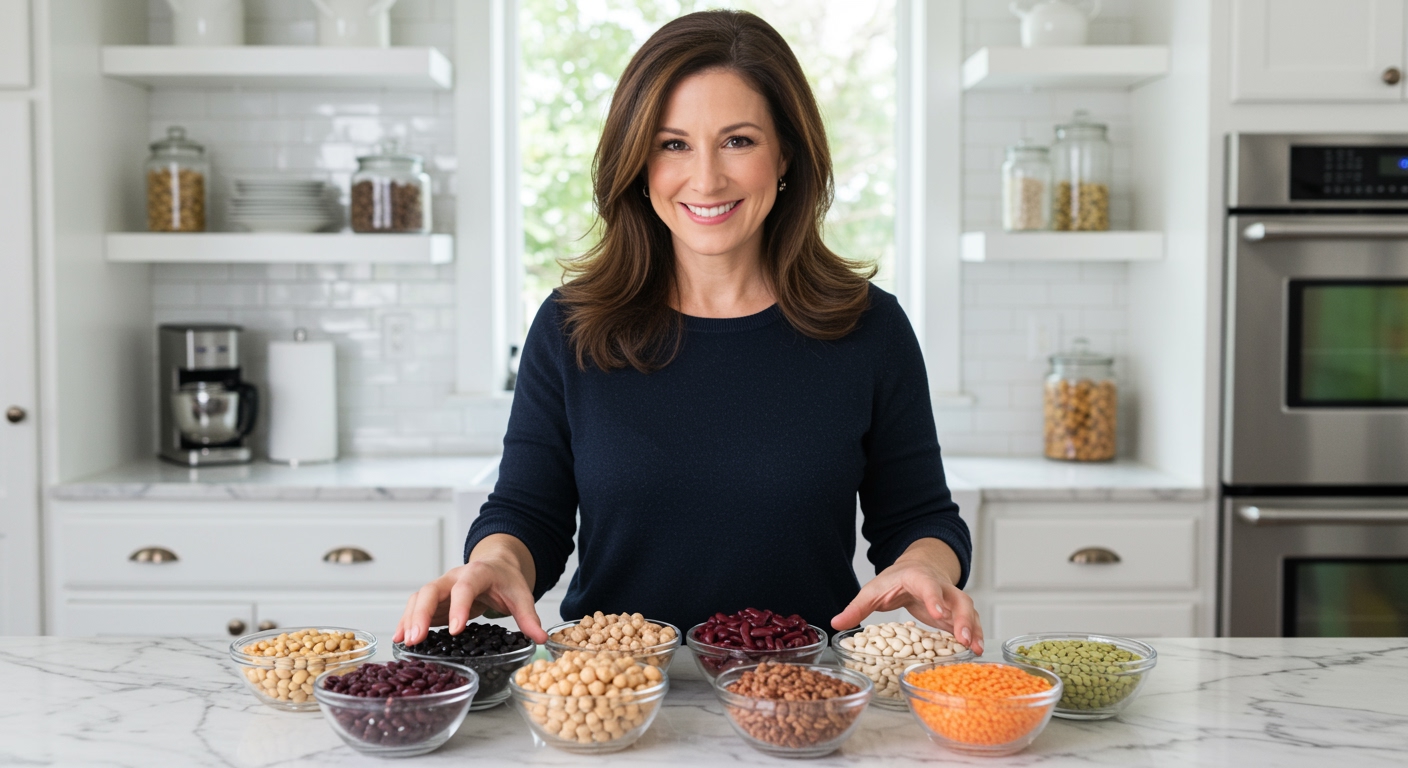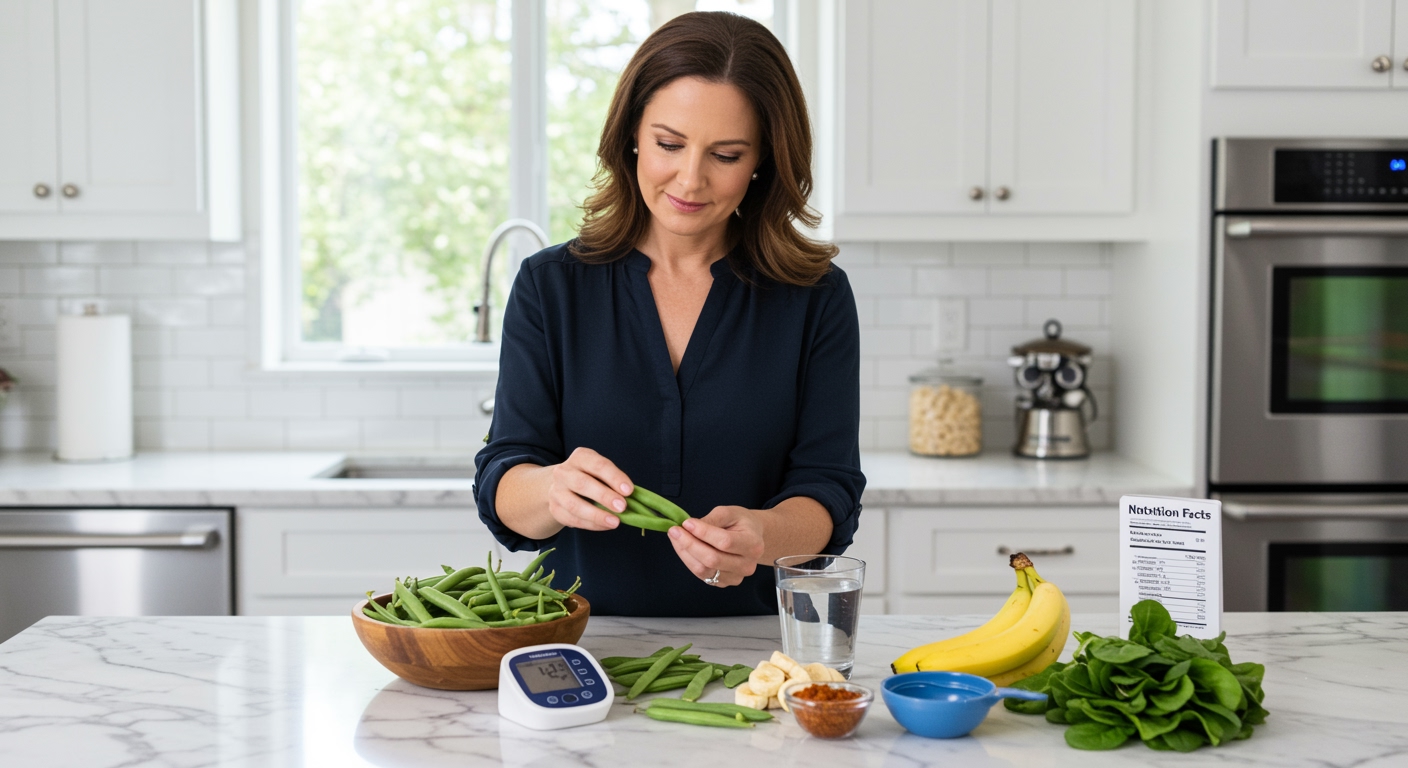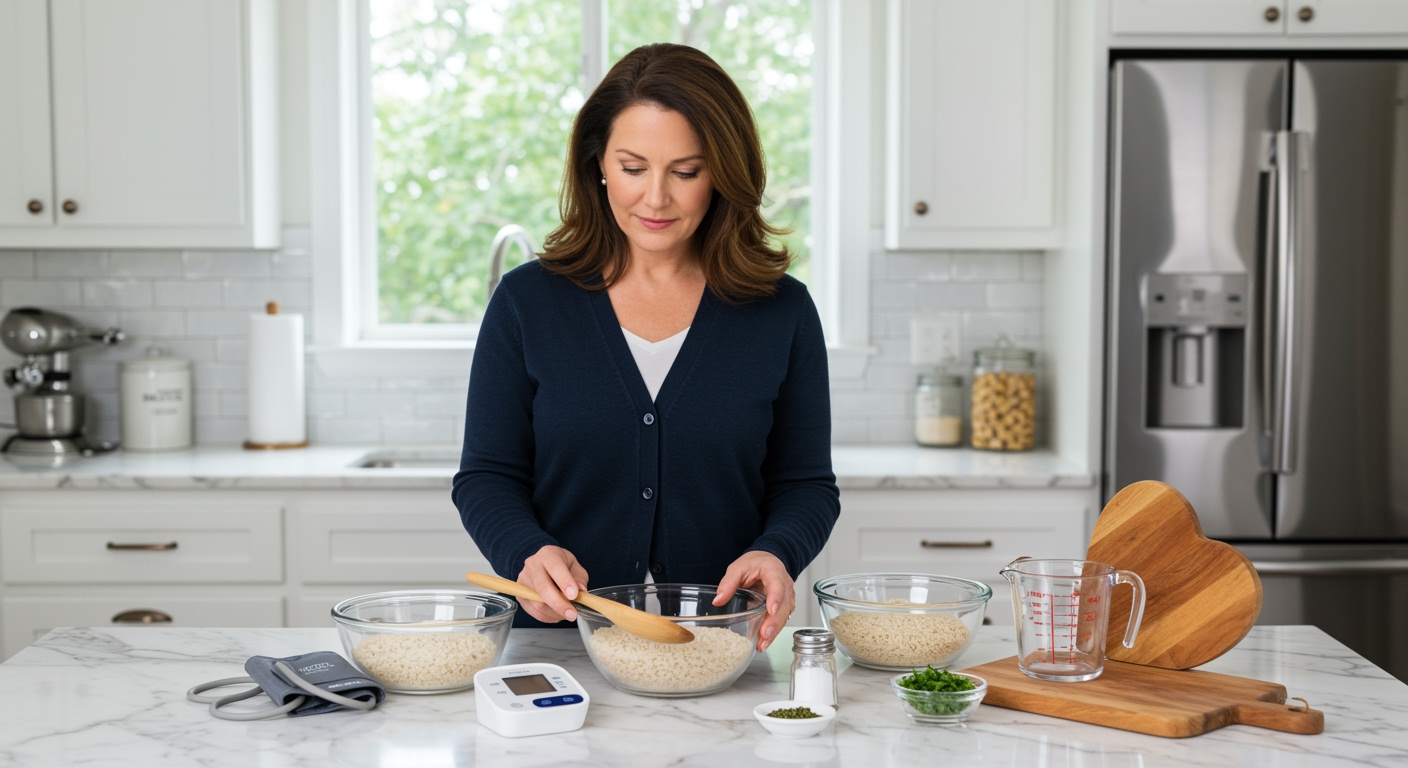✪ Key Takeaway: Yes, people with high blood pressure should eat more beans because they contain potassium, fiber, and protein that naturally lower blood pressure.
Introduction
Your doctor just told you that your blood pressure is too high and you need to change your diet immediately.
You might be wondering if simple foods like beans can really make a difference in managing your blood pressure, especially when you have heard conflicting advice about what to eat and what to avoid.
Hi, I am Abdur, your nutrition coach and today I am going to explain exactly how beans can help lower your blood pressure and why they should become a regular part of your meals.
How Do Beans Actually Lower Blood Pressure?
Beans work like natural blood pressure medicine through three powerful mechanisms that target the root causes of hypertension.
The first mechanism involves potassium, which beans contain in abundance. One cup of cooked kidney beans provides about 600 milligrams of potassium, which is roughly 13% of your daily needs. This mineral helps your kidneys remove excess sodium from your blood, which directly reduces the pressure on your artery walls.
The second mechanism is through fiber, specifically soluble fiber that beans are famous for containing. This type of fiber binds to cholesterol in your digestive system and removes it from your body before it can clog your arteries. When your arteries stay clear and flexible, your heart does not have to work as hard to pump blood.
The third mechanism involves magnesium, another mineral that beans provide in significant amounts. Magnesium acts like a natural calcium channel blocker, helping your blood vessels relax and widen. This relaxation effect directly reduces the resistance your heart faces when pumping blood through your circulatory system.
Research published in the American Journal of Hypertension found that people who ate beans at least four times per week had systolic blood pressure readings that were 3.4 mmHg lower than those who rarely ate beans.
These three mechanisms work together synergistically, meaning their combined effect is greater than the sum of their individual parts.
✪ Pro Tip: Rinse canned beans thoroughly to remove up to 40% of the added sodium before cooking.
Which Types of Beans Work Best for Blood Pressure?
Not all beans are created equal when it comes to blood pressure benefits, and some varieties pack more heart-healthy nutrients than others.
Black beans top the list with the highest potassium content, providing about 739 milligrams per cooked cup. They also contain anthocyanins, the same antioxidants found in blueberries, which help protect your blood vessels from damage caused by high blood pressure.
Navy beans come in second place, offering exceptional fiber content with nearly 19 grams per cup. This high fiber content makes them particularly effective at lowering cholesterol levels, which indirectly supports healthy blood pressure by keeping your arteries clear.
Kidney beans provide a balanced combination of potassium, magnesium, and folate. Folate is crucial because it helps your body produce nitric oxide, a compound that signals your blood vessels to relax and expand.
Chickpeas offer unique benefits through their high protein content, which helps stabilize blood sugar levels throughout the day. Stable blood sugar prevents the spikes and crashes that can trigger temporary increases in blood pressure.
Lima beans and pinto beans also provide significant benefits, though they contain slightly lower amounts of the key nutrients compared to the varieties mentioned above.
The key is variety because different beans provide different combinations of nutrients that work together to support your cardiovascular health.
✪ Fact: Dried beans contain 2-3 times more potassium than their canned counterparts due to processing differences.
How Much Should You Eat and How Often?
The optimal amount and frequency of bean consumption for blood pressure benefits has been studied extensively, and the results might surprise you.
Research shows that eating half a cup of cooked beans at least four times per week provides measurable blood pressure benefits. This amount translates to roughly 2 cups of cooked beans spread throughout your week, which is much more manageable than many people think.
The timing of when you eat beans also matters for maximum benefit. Consuming beans with lunch or dinner helps slow down the absorption of other nutrients, preventing blood sugar spikes that can temporarily raise blood pressure.
You do not need to eat beans every single day to see results, but consistency is more important than quantity. Eating a large portion once per week will not provide the same benefits as eating smaller portions spread throughout the week.
Start with smaller portions if you are not used to eating beans regularly. Begin with quarter cup servings and gradually increase to half cup servings over 2-3 weeks. This gradual increase helps your digestive system adapt and reduces the likelihood of experiencing gas or bloating.
People who already have well-controlled blood pressure can maintain their levels by eating beans 2-3 times per week, while those with elevated readings may benefit from the full four times per week recommendation.
Remember that beans work best as part of an overall heart-healthy eating pattern, not as a magic bullet solution on their own.
✪ Note: Soaking dried beans overnight and cooking them yourself maximizes their blood pressure lowering potential.
What About the Gas and Bloating Problem?
The digestive discomfort that many people experience with beans is real, but it is completely preventable with the right preparation and eating strategies.
The gas and bloating occur because beans contain oligosaccharides, complex sugars that your small intestine cannot fully digest. These sugars travel to your large intestine where bacteria ferment them, producing gas as a byproduct.
The most effective solution is gradual introduction. Start with just 2 tablespoons of cooked beans per meal and increase by 1 tablespoon every few days. This gives your digestive system time to produce more of the enzymes needed to break down these complex sugars.
Proper preparation makes a huge difference in digestibility. If using dried beans, soak them for at least 8 hours, then drain and rinse before cooking. This process removes many of the gas-causing compounds before they enter your digestive system.
Adding digestive spices like cumin, fennel, or ginger to your bean dishes can also help reduce gas production. These spices contain natural enzymes that help break down the problematic sugars before they reach your large intestine.
Drinking plenty of water throughout the day when eating beans helps your digestive system process the high fiber content more efficiently, reducing the likelihood of digestive discomfort.
Most people find that their digestive systems adapt within 2-3 weeks of regular bean consumption, and the gas and bloating issues resolve naturally.
✪ Pro Tip: Chew beans thoroughly and eat them slowly to give your digestive enzymes more time to work effectively.
Are There Any Risks or Downsides?
While beans are generally safe and beneficial for most people with high blood pressure, there are a few important considerations to keep in mind.
People taking blood pressure medications should monitor their levels more closely when adding beans to their diet. The potassium in beans can enhance the effects of certain medications, potentially causing blood pressure to drop too low.
Those with kidney disease need to be particularly careful because their kidneys may not be able to process the high potassium content in beans effectively. This can lead to hyperkalemia, a dangerous condition where potassium levels in the blood become too high.
Canned beans often contain high amounts of added sodium, which can counteract their blood pressure benefits. Always choose low-sodium or no-salt-added varieties, or rinse regular canned beans thoroughly before using them.
Some people may experience allergic reactions to certain types of beans, though this is relatively rare. Symptoms can include hives, digestive upset, or in severe cases, difficulty breathing.
Beans are high in purines, which can be problematic for people with gout. However, recent research suggests that plant-based purines like those in beans may not trigger gout attacks the same way that purines from meat and seafood do.
The fiber content in beans can interfere with the absorption of certain medications if taken at the same time. Space your bean consumption at least 2 hours away from taking any prescription medications.
✪ Note: Always consult your doctor before making significant dietary changes if you take blood pressure medications.
The Bottom Line
People with high blood pressure should definitely eat more beans because they provide a natural, effective way to lower blood pressure through multiple mechanisms that work better together than apart.
The best medicine often comes disguised as food, and beans are proof that simple changes can create powerful health transformations.
I would love to hear about your experience with adding beans to your diet or any questions you might have about incorporating them into your meal planning, so please share your thoughts in the comments below.
References
At NutritionCrown, we use quality and credible sources to ensure our content is accurate and trustworthy. Below are the sources referenced in creating this article:
- PMC: Legume Consumption and Blood Pressure
- PMC: Dietary Patterns and Hypertension
- Harvard Health: Love Those Legumes
- Abiomed: Beans for Heart Health





